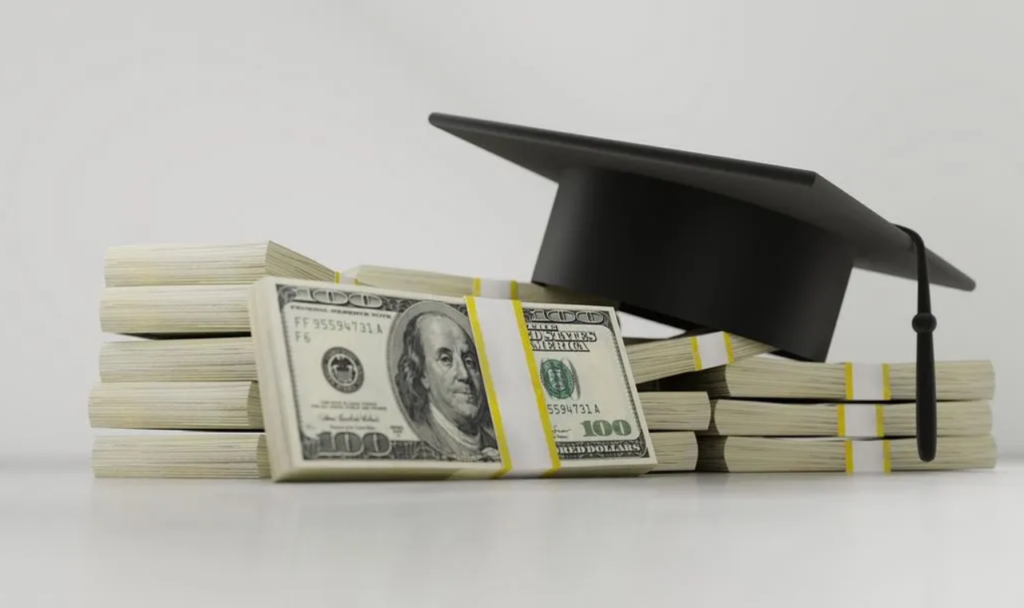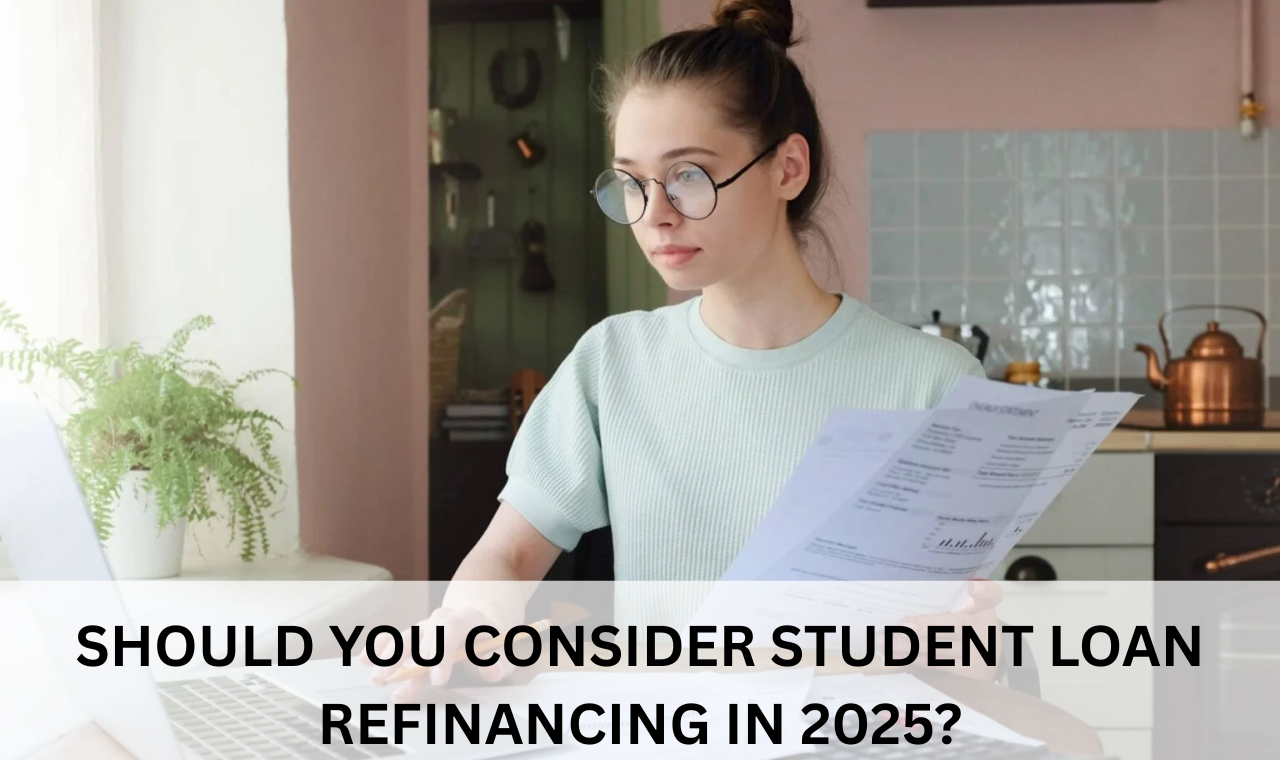As 2025 approaches, many student loan borrowers are weighing the possibility of refinancing their loans. While refinancing can offer significant savings by reducing interest rates, it’s not always the right option for everyone. Understanding the current student loan landscape, your financial situation, and the types of loans you hold is essential before making this important decision.
In this article, we will explore the pros and cons of refinancing student loans in 2025 and help you determine whether it is the right move for you.
What is Student Loan Refinancing?
Refinancing student loans involves taking out a new loan to pay off existing loans, ideally with a lower interest rate. This process can help borrowers save money on interest and reduce monthly payments. Refinancing can be done through private lenders, and it is available for both federal and private student loans. However, refinancing federal loans with a private lender means forfeiting federal protections, such as income-driven repayment plans and loan forgiveness programs.
When Should You Refinance Your Student Loans?
There are several circumstances where refinancing your student loans could be beneficial. Let’s take a closer look at when refinancing may make sense.
1. You Qualify for a Lower Interest Rate
One of the most obvious reasons to refinance your student loans is the potential for securing a lower interest rate. If your current loans have high interest rates and you qualify for a lower rate through refinancing, you could save money over the life of the loan. For example, if you currently have a loan with a 9% interest rate and you refinance to a loan with a 6% interest rate, you’ll pay less interest over time.
As of April 2025, average student loan refinance rates are around 8.82%, with the lowest rates starting at approximately 5.89% for borrowers with excellent credit. If you have a strong credit score and stable income, refinancing could be a smart way to lower your monthly payments and save money.
2. You Have Private Student Loans
Refinancing is often a good option for borrowers with private student loans. Private loans do not offer the same protections as federal loans, such as income-driven repayment plans or loan forgiveness options. Refinancing these loans with a lower interest rate can save you money and help you pay them off faster.
However, it’s essential to ensure that you are comfortable with the loss of federal protections if you are refinancing federal loans into private ones. If you are eligible for federal forgiveness programs, refinancing may not be the best choice.
3. You Have Multiple Loans to Consolidate
If you have multiple student loans with different interest rates, refinancing can allow you to consolidate them into a single loan. This simplifies your payments and may result in a lower overall interest rate. A single monthly payment is easier to manage, and refinancing can make it simpler to track your debt.

When Should You Avoid Refinancing?
While refinancing can be beneficial, it’s not always the best decision for everyone. Here are a few scenarios where you might want to avoid refinancing your student loans.
1. You Have Federal Loans and Benefit from Federal Protections
Federal student loans come with various protections and benefits that private loans do not offer. For example, federal loans offer income-driven repayment plans (IDR), which base your monthly payments on your income and family size. Additionally, federal loans are eligible for forgiveness programs, such as Public Service Loan Forgiveness (PSLF), which can forgive the remaining balance of your loan after a set number of qualifying payments.
Refinancing federal loans to private loans means losing access to these benefits. If you are working toward loan forgiveness or are enrolled in an income-driven repayment plan, refinancing may not be worth it. You would forfeit the ability to adjust your monthly payments based on your income, and you would lose eligibility for loan forgiveness programs. For more information on federal student loan benefits, visit StudentAid.gov.
2. You Are Concerned About Future Policy Changes
Federal student loan policies are subject to change, and refinancing could have implications depending on upcoming legislation. For example, the Consumer Financial Protection Bureau (CFPB) has recently deprioritized oversight of student loans, which may impact borrower protections in the future.
If you are unsure about future changes to federal student loan policies, refinancing could put you in a more vulnerable position. Keeping your federal loans could allow you to benefit from future protections or repayment plans that may be introduced.
3. Your Financial Situation is Unstable
If your income is unstable or you anticipate financial difficulties, refinancing may not be the best option. Federal loans offer flexibility through income-driven repayment plans, which can lower your monthly payments based on your income. If you refinance your federal loans into private loans, you may lose access to these flexible repayment options. If your financial situation becomes difficult, having federal protections could be crucial.
Current Market Conditions for Refinancing
As mentioned earlier, average refinancing rates are around 8.82% as of April 2025. However, rates can vary depending on factors such as credit score, loan term, and loan amount. For borrowers with excellent credit, rates can start as low as 5.89%.
If you are in a strong financial position and can secure a low-interest rate, refinancing may be a good option. But it’s important to carefully compare lenders and loan terms to find the best deal. Sites like NerdWallet and Bankrate can help you compare different lenders and their offerings.
Conclusion
Whether or not you should refinance your student loans in 2025 depends on your individual situation. Refinancing could save you money if you qualify for a lower interest rate, have private loans, or want to consolidate multiple loans into one. However, if you have federal loans and rely on federal protections like income-driven repayment or loan forgiveness, refinancing may not be the best option.
Before making any decisions, it’s important to assess your financial situation, understand the potential impact on your loan benefits, and stay informed about any changes to federal student loan policies. If you’re unsure, consider consulting with a financial advisor or using resources like StudentAid.gov for more information on federal student loan repayment options.

Pankaj Kumar is a skilled content writer at OTE News, focusing on breaking news, technology, and socio-political developments. With a background in Mass Communication, he brings a balanced perspective to his articles, ensuring clarity and reliability. Pankaj has a knack for simplifying complex topics for readers.
In his free time, he enjoys photography, traveling, and experimenting with new cuisines. His curiosity and dedication to truthful reporting make him a valuable contributor to OTE News.




